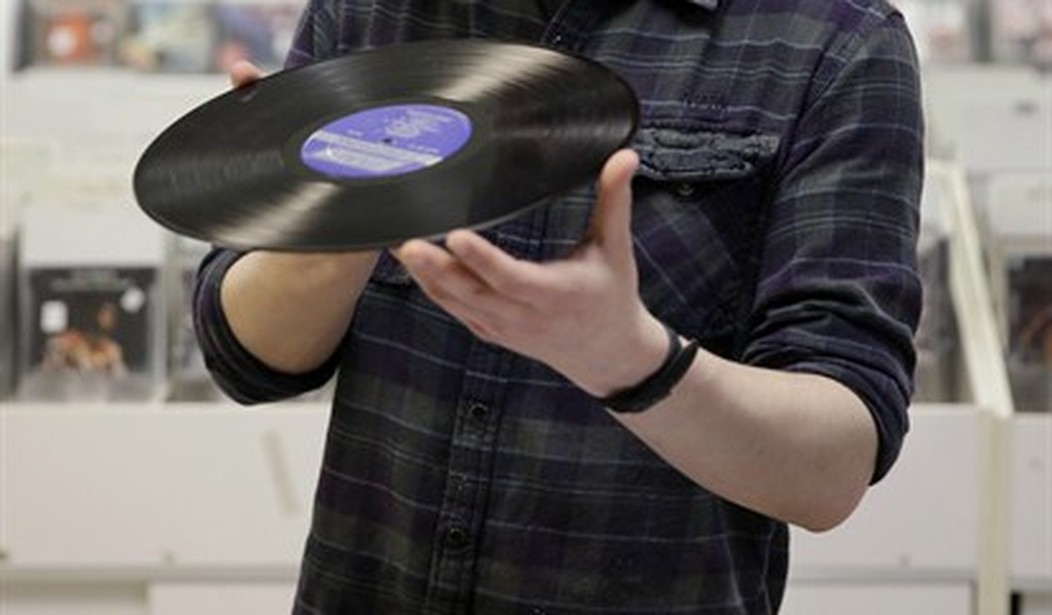Like most people who grew up in the late 70s/early 80s I loved music. I think it was 8th grade when I graduated from the green plastic record player my grandfather had bought me at Sears to a Technics turntable, a receiver and a big pair of Fisher speakers. I still remember that turntable fondly. I’m not sure what happened to it.
By the time I went off to college CDs had come along and you may remember the whole industry was really pushing digital as the future of music. Albums would be labeled on the back with a three letter code that showed just how digital the production had been. So some CDs would be AAD and a few were listed as DDD. At the time that was considered the best. But as we all know, CDs went out and vinyl came back in a big way. Analog/vinyl was once again the thing that everyone wanted and digital was the thing all the serious audiophiles wanted to weed out of their collections as much as possible.
I first got involved in this as an adult when my daughter told me the only thing she wanted for her 16th birthday was a turntable. I tried to talk her out of it but it was truly all she wanted so I got her one. And then I started going record shopping with her and re-buying some of the albums I remember listening to in high school for her collection. And in the process I learned that vinyl is so big now that lots of music is constantly being reissued, often in remastered versions or sometimes with entire bonus albums.
Jump forward to this year and my 16 y.o. daughter is finishing college and I’ve finally decided I’m going to buy myself a turntable so I can keep listening to records the way I did when I was a teenager. So over the past few months I’ve been looking at various models and watching reviews on YouTube and that’s how I stumbled onto the MoFi scandal. I was actually thinking about writing about this last week but it seemed sort of niche. But then last Friday the Washington Post wrote about it so clearly it wasn’t as niche as I thought. The whole thing started with a record store owner in Phoenix named Mike Esposito who has a YouTube show about vinyl records.
In a sometimes halting video posted to the YouTube channel of his Phoenix record shop, the ‘In’ Groove, Esposito said that “pretty reliable sources” told him that MoFi (Mobile Fidelity), the Sebastopol, Calif., company that has prided itself on using original master tapes for its pricey reissues, had actually been using digital files in its production chain. In the world of audiophiles — where provenance is everything and the quest is to get as close to the sound of an album’s original recording as possible — digital is considered almost unholy. And using digital while claiming not to is the gravest sin a manufacturer can commit…
Shane Buettner, owner of Intervention Records, another company in the reissue business, defended MoFi on the popular message board moderated by mastering engineer Steve Hoffman. He remembered running into one of the company’s engineers at a recording studio working with a master tape. “I know their process and it’s legit,” he wrote. Michael Fremer, the dean of audiophile writing, was less measured. He slammed Esposito for irresponsibly spreading rumors and said his own unnamed source told him the record store owner was wrong. “Will speculative click bait YouTube videos claiming otherwise be taken down after reading this?” he tweeted.
As you can probably guess, Esposito’s source was correct. He went to Mobile Fidelity and interviewed three of their top recording engineers who basically confirmed that most if not all of their albums over the past 10 years have been made from digital master tapes.
If you’ve been out of this for decades or were never in it at all, this may not seem like a big deal, but for the audiophiles, it’s basically a matter of religious faith that digital is inferior. And that belief not only justifies purchasing $60 reissues which supposedly came direct from the original master tape, but also the even more pricey turntables and receivers that audiophiles say are necessary to get the pure analog sound. Really it’s an industry built around this central idea. So finding out that one of the big producers of remastered classics is pulling them all from a digital copy of the master tape is a kind of sacrilege to some people.
“It’s the biggest debacle I’ve ever seen in the vinyl realm,” says Kevin Gray, a mastering engineer who has not worked with MoFi but has produced reissues of musicians such as John Coltrane and Marvin Gaye.
“They were completely deceitful,” says Richard Drutman, 50, a New York City filmmaker who has purchased more than 50 of MoFi’s albums over the years. “I never would have ordered a single Mobile Fidelity product if I had known it was sourced from a digital master.”…
Syd Schwartz, Mobile Fidelity’s chief marketing officer, made an apology.
“Mobile Fidelity makes great records, the best-sounding records that you can buy,” he said. “There had been choices made over the years and choices in marketing that have led to confusion and anger and a lot of questions, and there were narratives that had been propagating for a while that were untrue or false or myths. We were wrong not to have addressed this sooner.”
At this point I’ve watched a bunch of longer videos about this whole thing from people on all sides. There are some audiophiles who are pretty clearly embarrassed by it. There are lots of non-audiophiles who are pointing out that the fixation on analog purity has created this whole situation. It’s not just the albums themselves, it’s the $10,000 turntables (or more) which some people buy to be part of this club. But a lot of people are just angry because they feel Mobile Fidelity lied to them. And having looked at the evidence I have to say I agree.
To be clear, MoFi never said “This record was produced from an analog master tape with no steps in between.” They were more clever than that. They simply advertised that their products were made from the original analog master tapes and year after year failed to mention that in many cases they had to make digital copies of those tapes in order to produce the albums they were selling to collectors.
There are a lot more angles to this scandal but I think the one I found most interesting was the fact that most people agree the MoFi records made from the digital copies of the master tape are pretty good. Not all of them of course but in some cases the MoFi pressing of an album is considered the best one available even by people like Mike Esposito, the guy who brought this to light. And that creates a pretty interesting dynamic where people who’ve really been devoted to the idea that analog material was the ultimate are now having to admit to themselves that some of their favorite “analog” albums were actually made from a digital source. Again, not everyone is able to deal with that revelation but some people are starting to reevaluate everything.
One YouTuber whose take I enjoyed made a simple point that sort of crystalized the whole thing. He pointed out that if some of these MoFi albums are great despite coming from a digital source then why not skip the vinyl completely? In other words, maybe true audiophiles should ditch expensive turntables and expensive records and just buy digital copies of the master tapes. Wouldn’t those be more true to the original sound without all of the physical steps involved in making a vinyl record?
It’s an interesting question but for me, I’ve never been an audiophile, I just like listening to vinyl records growing up so I’m still going to buy a turntable (but not a super expensive one). And if the best source of a particular album turns out to be digital, that’s okay with me.
Here’s Mike Esposito’s interview with the engineers from Mobile Fidelity.
And if you’re interested, here’s one of the best deep dives I’ve seen on Mobile Fidelity’s carefully crafted advertising gimmicks throughout the years.







Join the conversation as a VIP Member